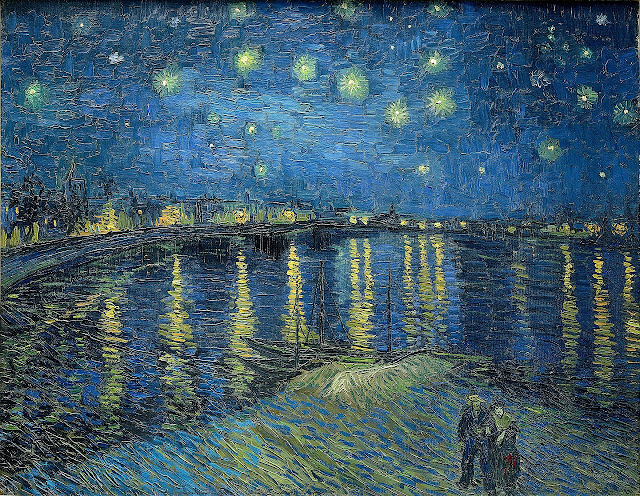The world is full of phoney, vitriolic people with empty hearts and vacant minds. As Van Gogh found to his ultimate cost, sometimes the only path is to follow your heart, spill out whatever is inside, grab all the wonder that you see in the world and do your best to share it, even with those who will not listen or look. Vincent Van Gogh's soul emanated a beauty that was so far beyond the reach of other men, yet battled for his place in a society where he had been rejected by inferiors. And in the end? The world remembers Vincent - a man who created 800 paintings and sold only one in his lifetime - as the undisputed father of modern art. As Joseph Roulin tells his son towards the end of the film: "The trick is to know what you are fighting for." Perhaps Vincent knew that he would live on, long after death had taken his body away. Perhaps he knew what he was fighting for, all along.
 |
| Self portrait, 1889 |
Created exclusively using 65,000 individual oil paintings, Loving Vincent has hit me to the point of tears, both for its poignant message and its perfect homage to the great artist. How the directors (Dorota Kobiela and Hugh Welchman) managed to incorporate so much from Van Gogh's huge body or work into the film is incredible, and seeing so many of his masterpieces - along with lesser-known paintings - weaved seamlessly into the narrative is a joy to behold. A must-see film for art lovers, culture vultures, and anyone who just believes there's more to life - more to being human - than flesh, blood and bones.
 |
| Landscape with carriage and a train, 1890 |




No comments:
Post a Comment